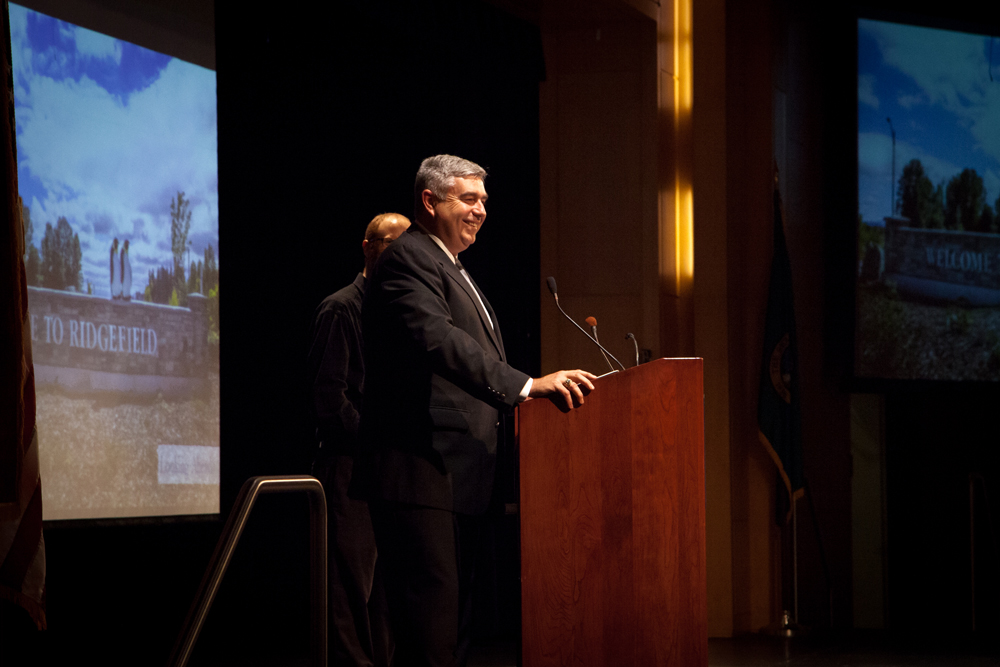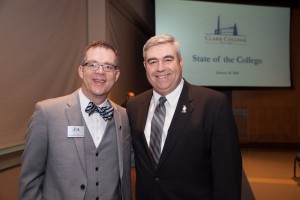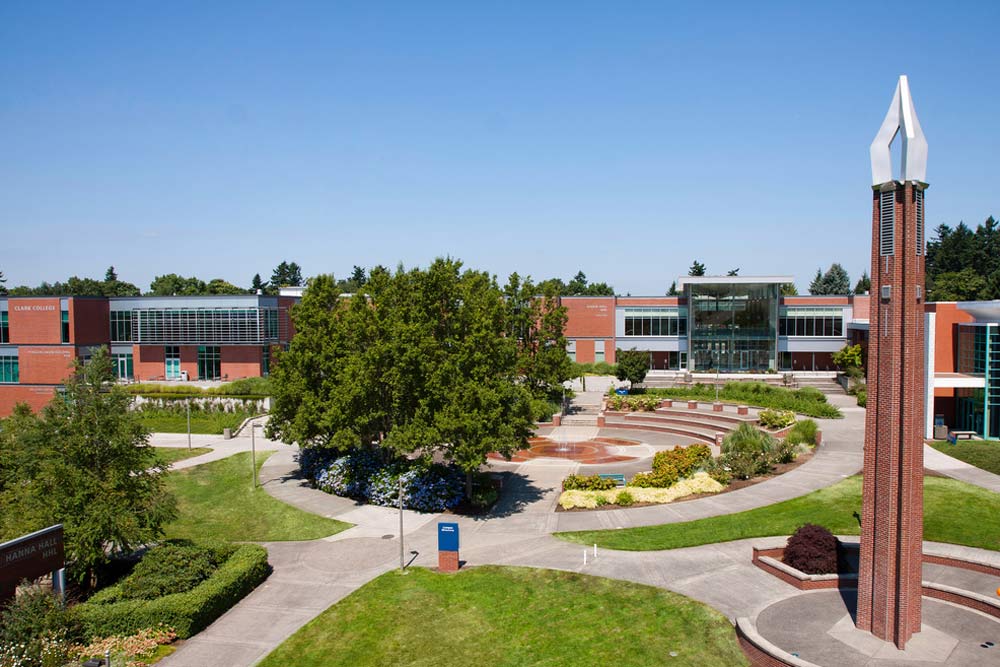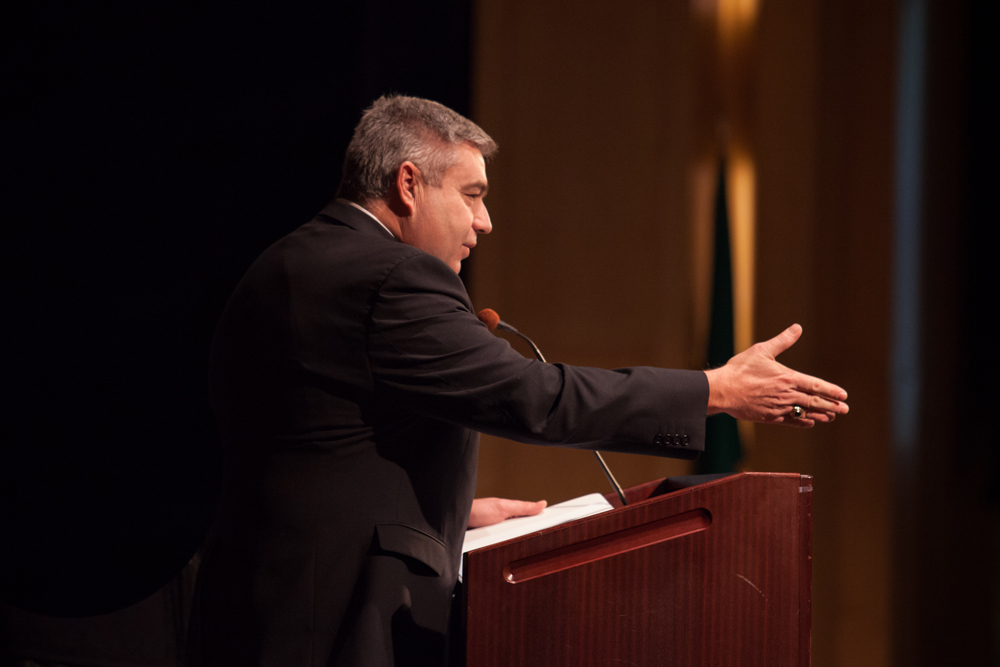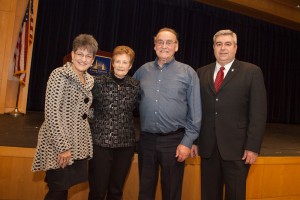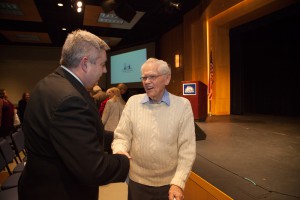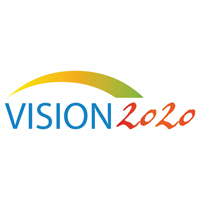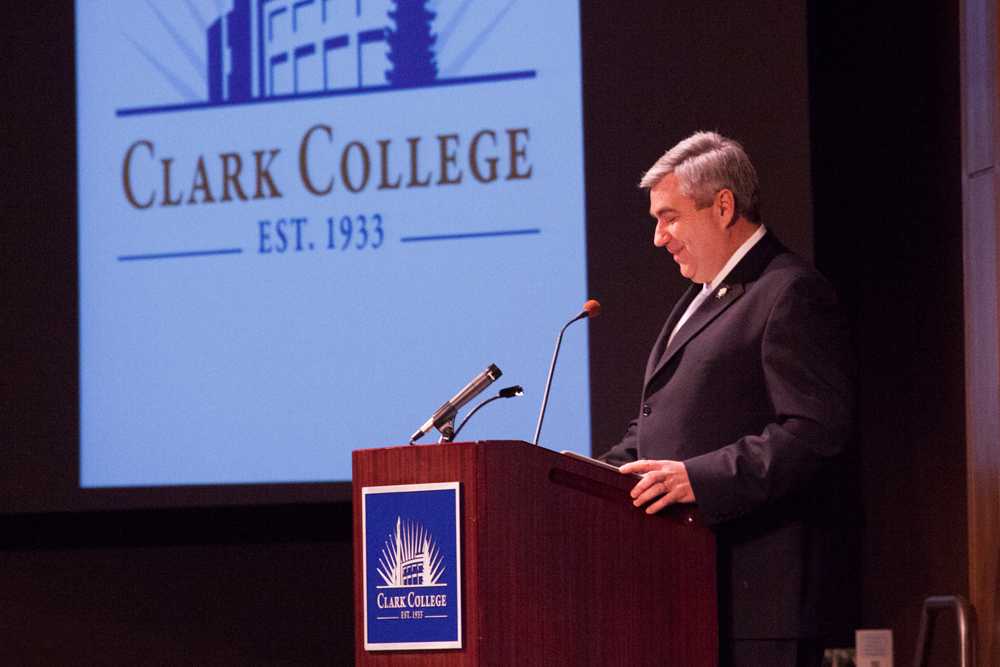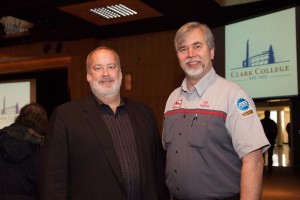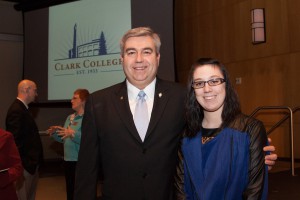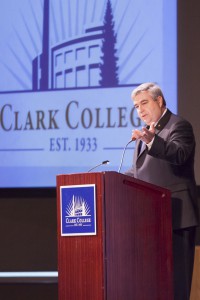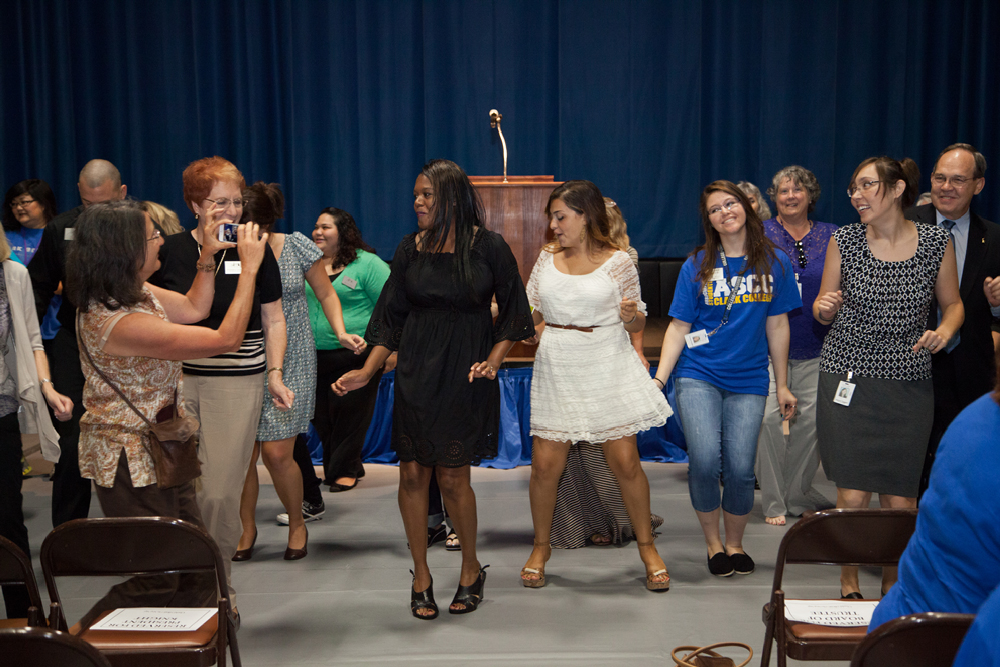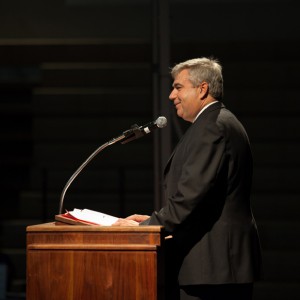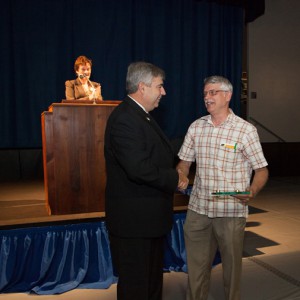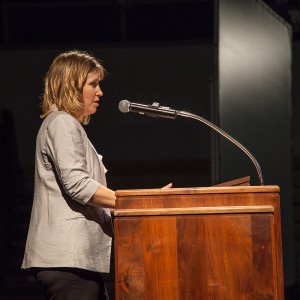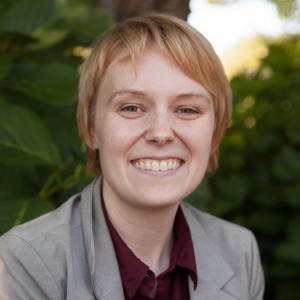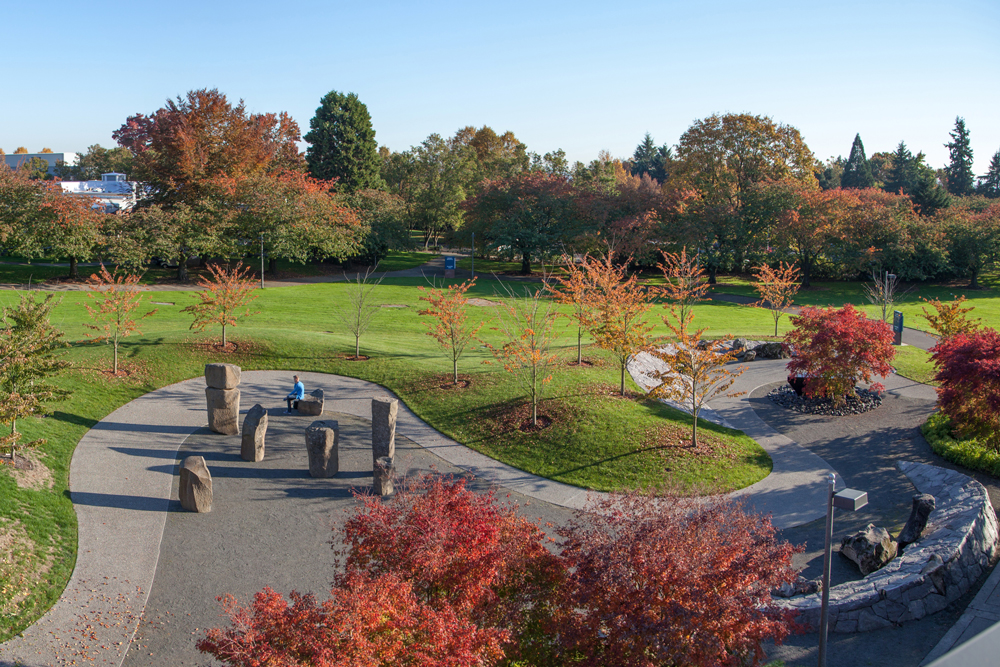
As Clark College moves forward with its Strategic Planning process, Clark 24/7 is interviewing different college employees about how they see themselves fitting into the “big picture” of Clark’s central goal of supporting student learning. For the current segment, “Engagement to Learn,” we interviewed two individuals who work in very different areas about how they help students stay engaged at Clark.
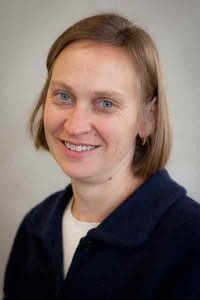 Janette Clay
Janette Clay
Program Specialist, Office of Instruction
Give us a little background about what you do at Clark.
I work directly with the Title III Strengthening Institutions grant supporting First Year Experience (FYE) initiatives and also Outcomes Assessment. For people who are unfamiliar with FYE, these are programs designed to work with students when they first arrive at the college to help them be successful at Clark and beyond.
How do you see yourself supporting student engagement at the college?
FYE initiatives continue to expand, and the main focus is on student retention and completion. One initiative is COLL 101 (“College Essentials”), a two-credit course that teaches students concepts they’ll need to know to be successful at Clark and beyond–such as time management, financial literacy, learning styles, recognizing privilege and inequity, and knowing how to find and use resources at the college. There’s also the FYE Mentor Program and service projects that help students feel a sense of community at Clark. Another initiative, one that will expand in 2014-15, is our Learning Community model of instruction. Learning Communities are linked classes, where each class’s coursework supports that of the other class. So, for instance, you could have students taking a statistics class where all the statistics come from studies they’re reading together in their linked psychology class. Students really get a chance to feel connected both to the coursework and to their classmates. All these initiatives are designed to keep students engaged.
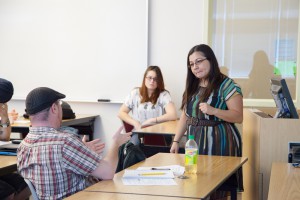
Students in COLL 101 discuss power, privilege and inequity with their instructor, Felisciana Peralta.
Is there a way that your department/program supports student learning that you think would surprise other people at the college?
I don’t think that all staff and faculty at Clark College know that they can be mentors for new students in the FYE Mentor Program. The mentees in these one-to-one relationships are lucky to have people to turn to for help navigating the system, whether it be registering for classes, studying for finals, or joining clubs.
Hopefully this is not a surprise, but in Outcomes Assessment, we continue to collaborate with faculty in the practice of meaningful, sustainable assessment to enhance student learning. There are many training and funding opportunities available for faculty to create and implement assessment projects, learn about researched best practices, and participate in professional development activities.
How has the Strategic Plan process made you look differently at your own role at Clark? How has it made you look differently at others’ roles?
It has made me think about the role that I can play, and that I am a part of this process like all other staff and faculty at Clark College. In looking differently at others’ roles, I learn more about what other people do, and furthermore how our roles interact now, and can interact better as we move toward 2020.
What have you enjoyed about the Strategic Plan process so far?
It is really beneficial to get to know and work with other people at the college whom I had never met prior to the Strategic Plan process. I have also enjoyed the readings, as they are very informative and thought-provoking and therefore generate good discussions. My group, the “Supernovas,” is a really fun group of people with some great ideas!
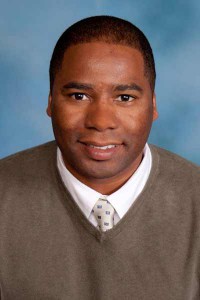 Charles Guthrie
Charles Guthrie
Director of Athletics
Give us a little background about what you do at Clark.
I oversee 11 intercollegiate teams, coaches, staff and game operations for an estimated 92 home games a year, competing in the Northwest Athletic Association of Community Colleges (NWAAC). I’m also in charge of all strategic planning, budget, Title IX compliance and external relations for the department, which is part of the division of Student Affairs.
How do you see yourself supporting student engagement at the college?
Clark College has approximately 200 student-athletes who are part of our Intercollegiate Athletics program. Student-athletes at Clark College have the opportunity not only to compete on the court or field, but to continue to hone important life skills, including the value of teamwork, individual and group responsibility, physical fitness, sportsmanship, diversity, and a sense of commitment to fellow students, faculty and the broader community. These critical skill sets will enable Clark student-athletes to engage not just during their tenure at Clark College, but as they move on through the rest of their lives.
Is there a way that you or your department/program supports student learning that you think would surprise other people at the college?
I don’t know if the broader campus community has visibility into how our student-athletes are able to learn about and promote the importance of diversity on many different levels. Our student-athletes come from various socio-economic and cultural backgrounds and they learn to both accept and embrace those differences as well as find new connections and ways to unite as a team.
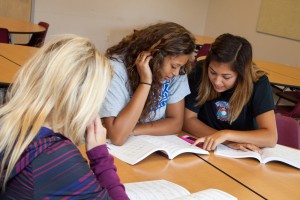
Student-athletes participate in study hall.
I’ve realized that our athletic program is an important component to many of the key areas outlined in the plan and we can have a positive impact on the strategic initiatives that are critical to ongoing success for Clark College as a whole. I knew this prior to engaging in the process, but did not understand to the full extent we could engage and collaborate, and I hope it has helped other departments throughout campus recognize how we can contribute beyond just athletic competition–i.e., diversity, student success, retention and access.
Where do you envision Clark College in 2020?
As the best value in higher education within the state of Washington and setting the bar for driving impactful college-wide programs like the Strategic Planning process. I would expect that Clark College will continue to earn public recognition for the passion and hard work that unite our campus community.
How do you think your department will have changed by then?
In another six years I hope to have several classes of alumni who have passed through our program who are engaged and feel strongly about continuing to support Clark College Athletics. We want to continue to improve on the academic support, facilities and life lessons we offer to our student-athletes. If these areas were to look the same in 2020 there would be a problem, because we must continue to evolve our program to fit the ever-changing needs of our students. And, of course, it would be great to add a few NWAACC Championships to the growing list of administrative, academic and athletic accolades Clark College earns each year.
